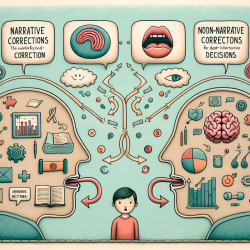Understanding the Importance of Data-Driven IEP Meetings
Individualized Education Programs (IEPs) are critical tools in special education, ensuring that children with unique needs receive tailored support to thrive academically and socially. As a superintendent, you play a pivotal role in overseeing the effectiveness of these programs. By leveraging data-driven strategies, you can transform IEP meetings into powerful sessions that lead to better outcomes for students.
The Power of Data in IEP Planning
Data-driven decision-making is not just a buzzword; it is an essential practice in the realm of special education. Here’s why:
- Objective Insights: Data provides an objective lens through which student progress can be measured. This helps in setting realistic goals and tracking achievements over time.
- Customized Interventions: By analyzing data, educators can tailor interventions that address the specific needs of each child, enhancing the efficacy of the IEP.
- Informed Decisions: Data empowers educators and administrators to make informed decisions about resource allocation, ensuring that support is directed where it is most needed.
Strategies for Effective Data-Driven IEP Meetings
Implementing data-driven strategies in IEP meetings can significantly improve their outcomes. Here are some steps to consider:
- Comprehensive Data Collection: Gather a wide range of data, including academic performance, behavioral assessments, and social interactions. This holistic view allows for a more complete understanding of the child’s needs.
- Collaborative Analysis: Involve all stakeholders, including teachers, therapists, and parents, in the data analysis process. This collaborative approach ensures that diverse perspectives are considered, leading to more comprehensive IEPs.
- Set Measurable Goals: Use data to set specific, measurable, achievable, relevant, and time-bound (SMART) goals. This clarity helps in tracking progress and making necessary adjustments.
- Continuous Monitoring: Establish a system for ongoing data collection and analysis. Regularly scheduled reviews ensure that the IEP remains relevant and effective.
The Role of Online Therapy in Enhancing IEP Outcomes
Online therapy services, like those offered by TinyEYE, provide an innovative solution to enhance the delivery of special education services. Here’s how online therapy can benefit your IEP process:
- Accessibility: Online therapy removes geographical barriers, making it easier to provide consistent support to children regardless of location.
- Data Integration: Many online therapy platforms offer integrated data tracking, simplifying the process of monitoring progress and adjusting IEPs as needed.
- Flexibility: Online therapy sessions can be scheduled at convenient times, ensuring that children receive support without disrupting their regular school schedule.
Conclusion
As a superintendent, your commitment to data-driven IEP planning can significantly enhance the educational experience of children in special education. By embracing these strategies and integrating online therapy solutions, you can lead your schools toward more effective and impactful IEP meetings. Remember, the ultimate goal is to create an environment where every child can succeed and reach their full potential.










